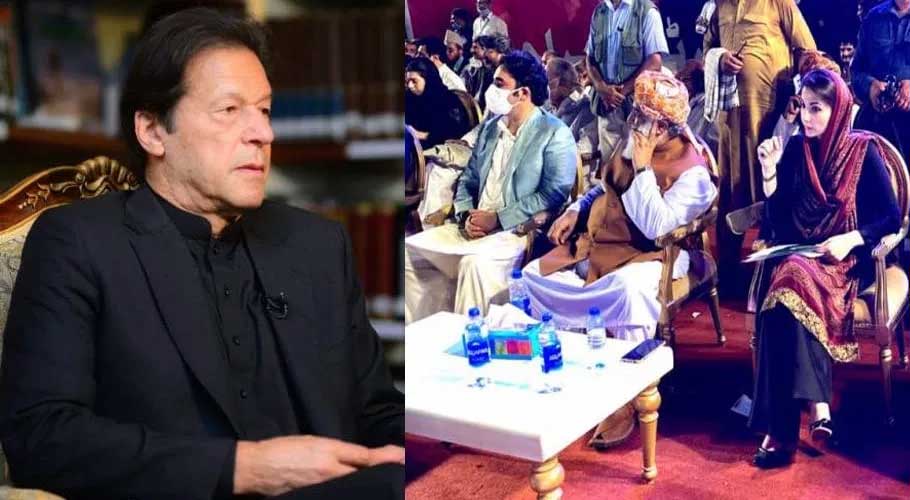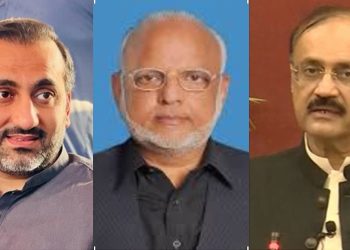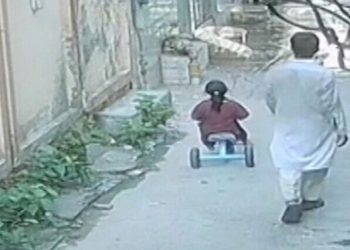The rivalry between Prime Minister Imran Khan and Pakistan Democratic Movement (PDM) has worsened the situation of COVID-19 in Pakistan. The blame game between the two parties is at its peak.
Despite the rising COVID-19 situation, the 11-party opposition alliance has refused to cancel the upcoming anti-government rallies. On the other hand, the reluctant Prime Minister has ruled out the idea to close the industries and factories across the country.
The pandemic has also played the role of a double-edged knife i.e. if the lockdown is relaxed, the fear of an increase in the number of coronavirus cases rises, whereas if the lockdown is strictly imposed then economies tend to bear the repercussions.
Meanwhile, the provincial governments have restricted the timings of business activities in their respected province, and the traders are not satisfied with the decision. Let’s take an in-depth review of the ongoing situation in the country.
COVID-19 situation in Pakistan
In the past 24 hours, another 40 people died due to the COVID-19 complications, bringing the total number of deaths to 7,843, according to National Command and Operations Center (NCOC).
On the other hand, at least 3,306 new cases of coronavirus were reported, bringing the total number of victims to 386,198. The number of coronavirus cases in Islamabad is 28,555, Khyber Pakhtunkhwa 45,828, Sindh 1,67,381, Punjab 1,16,506, Balochistan 16,942, Azad Kashmir 6,403 and Gilgit-Baltistan 4,583.
It was reported that hospitalizations due to COVID-19 have doubled in the last two weeks while the positivity ratio increased to 7.46 percent in the last 24 hours. The positivity ratio in educational institutions rose from 1.8 percent to 3.3 percent during the last week — an increase of 82 percent.
COVID-19 restrictions
However, Prime Minister has refused to impose a complete lockdown and to close the factories and business across the country, the provincial governments have imposed several restrictions to contain the outbreak of the novel coronavirus.
The PPP-led Sindh government has imposed a ban on indoor dining services in all restaurants. Only open-air restaurants have been permitted to continue dine-in services. The Sindh government also banned the entry of aged people to all vegetable markets of the province and made it mandatory for all citizens to wear masks while visiting the markets.
Several areas of the metropolis were already put under micro and smart lockdowns owing to the Covid-19 second wave. Punjab government also issued a notification announcing that all businesses and markets will be allowed to open only from 6 am to 6. This step was also taken by the Sindh government.
On the other hand, a meeting of inter-provincial education ministers chaired by the Federal Minister for Education Shafqat Mahmood agreed to close educational institutions for a month due to coronavirus.
Federal Minister for Education Shafqat Mahmood said that all educational institutions will be reopened on 11th January after 6 weeks if conditions improve.
Economic situation
Pakistan was already suffering from a mild recession prior to the arrival of COVID-19. In the first lockdown, livelihood opportunities, especially for daily wage workers, were squeezed. Not only small and medium enterprises and traders were badly hit but the sudden closure of large industries, ports, airports and transport services also jammed the wheel of economies.
However, inflation remained a major challenge for the federal government which was trying to control the prices of commodities, particularly wheat and sugar. The government had to import wheat to counter scarcity across the country. Apart from the pandemic, the foreign debt policy of the government, unprecedented price hikes, and a reduction in exports have also weakened the economy.
Adding to the misery, the country is facing a gas shortage for a minimum of the next two years, thereby further exerting a negative impact on the staggering performance of Pakistan’s industries. In light of these circumstances, growth is unlikely to knock at the economy’s door anytime soon.
Pakistan Democratic Movement (PDM)
Pakistan People’s Party (PPP) Co-Chairman Bilawal Bhutto tested positive for coronavirus, a day after his political secretary tested positive. Despite the rising numbers of infections, the opposition alliance has announced to stage the rally in Multan November 30.
The government and opposition have been at odds over the holding of public rallies at a time when Pakistan is in the throes of a second coronavirus wave. Last week, there was an extensive war of words between the government and the opposition over the PDM’s rally in Peshawar.
Despite a ban by the district administration, the opposition had termed the government more dangerous than the pandemic and PDM president Maulana Fazlur Rehman had said the government was making desperate attempts to foil the rally on the pretext of COVID-19.





































